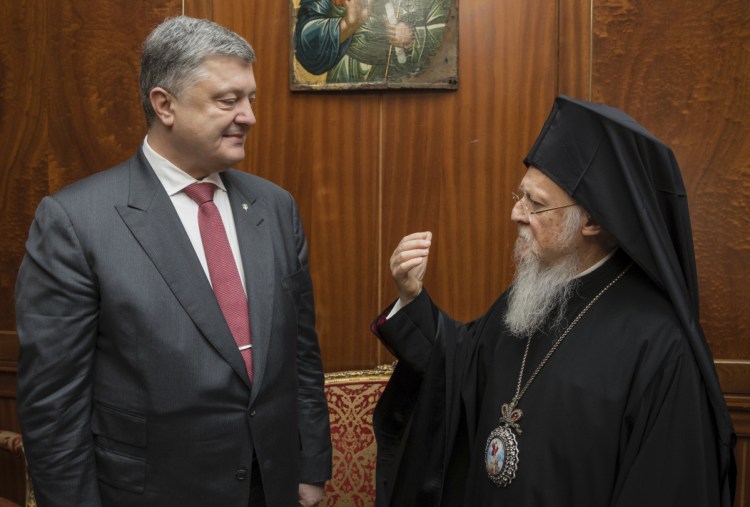LONDON — The Russian hackers indicted by the U.S. special prosecutor last month have spent years trying to steal the private correspondence of some of the world’s most senior Orthodox Christian figures, The Associated Press has found, illustrating the high stakes as Kiev and Moscow wrestle over the religious future of Ukraine.
The targets included top aides to Ecumenical Patriarch Bartholomew I, who often is described as the first among equals of the world’s Eastern Orthodox Christian leaders.
The Istanbul-based patriarch is currently mulling whether to accept a Ukrainian bid to tear that country’s church from its association with Russia, a potential split fueled by the armed conflict between Ukrainian military forces and Russia-backed separatists in eastern Ukraine.
The evidence comes from a hit list of 4,700 email addresses supplied last year by Secureworks, a subsidiary of Dell Technologies.
The AP has been mining the data for months, uncovering how a group of Russian hackers widely known as Fancy Bear tried to break into the emails of U.S. Democrats, defense contractors, intelligence workers, international journalists and even American military wives. In July, as part of special counsel Robert Mueller’s ongoing investigation into Russian interference in the 2016 U.S. election, a U.S. grand jury identified 12 Russian intelligence agents as being behind the group’s hack-and-leak assault against Hillary Clinton’s presidential campaign.
Patriarch Bartholomew claims the exclusive right to grant a “Tomos of Autocephaly,” or full ecclesiastic independence, sought by the Ukrainians. It would be a momentous step, splitting the world’s largest Eastern Orthodox denomination and severely eroding the power and prestige of the Moscow Patriarchate, which has positioned itself as a leading player within the global Orthodox community.
Send questions/comments to the editors.


